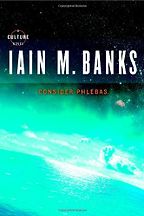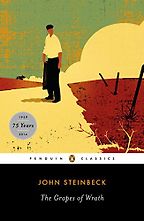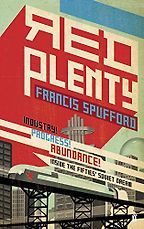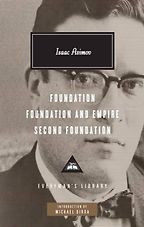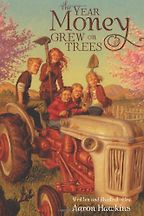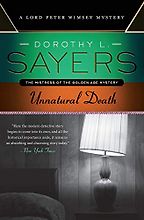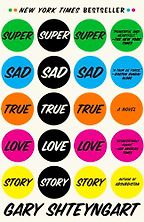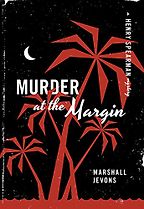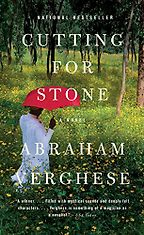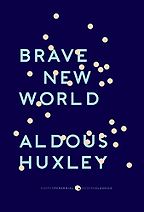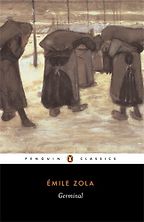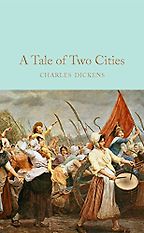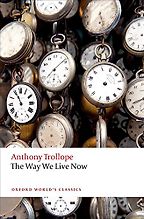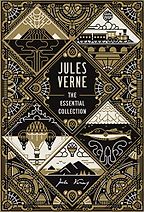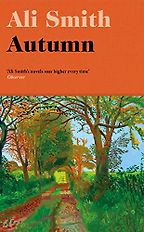Fiction Recommended by Economists
Last updated: March 08, 2025
It was the Scottish philosopher Thomas Carlyle who called economics a 'dismal science'. As the discipline was associated at that time with the predictions of the Reverend Thomas Malthus, it's not entirely surprising that reading about it didn't fill him with good cheer. Two centuries later, we can be a lot more optimistic about a discipline which is vibrant and has done a lot of good. In contrast to the days of Adam Smith and Thomas Malthus, however, it does have a tendency to take incredibly interesting topics and turn them into equations. It's certainly not a subject that's associated with telling a good story. Nonetheless, in our interviews with economists, various novels and works of fiction get recommended, illustrating that what's important about economics can be conveyed powerfully through fiction. We've collected the books here, our list of fiction recommended by economists:
“The underlying conceit is that this is a post-scarcity society where people are free from any kind of material concerns. If they want to tear down their existing planet and build a whole new one, they can just go ahead and do it. It’s quite a successful imagining of what things might be like, and how people might react to an end to scarcity.” Read more...
John Quiggin, Economist
“This was first published in 1939 while the US was still grappling with the Depression, and what is brilliant about it is that it reveals that economic problems can’t just be dealt with through some wave of the free-market magic wand. It’s a very harrowing read…His sense of people finding themselves hugely disadvantaged is something that has a modern-day connotation – the whole debate about immigration today is tied up with this. In both cases it’s about migrant labour. In The Grapes of Wrath it’s migrant labour from within the US, and it’s those people who are often the most vulnerable. This is the human aspect of that story, and I think that Steinbeck summarised much of what happened in the Great Depression far better than many economists did, because he really dealt with the true losses that came through for people who just happened to be down on their luck.” Read more...
The best books on Globalisation
Stephen D King, Economist
Red Plenty
by Francis Spufford
Red Plenty is, yes, a historical novel about economics. It’s not even about economics that works: it’s about the Soviet Union’s attempt at a sophisticated planned economy, based on math, which we all now know failed in the end. But in the 50s and 60s, when this novel is set, nobody knew it would turn out that way. It’s a brilliant, quirky book which, according to political scientist Henry Farrell in his interview on the politics of information,” has acquired kind of a cult following among social scientists.”
“This is a very unusual set of novels from Isaac Asimov, but a classic…The story is about these people, psychohistorians, who are mathematical social scientists and have a theory about how society works. The theory tells them that the galactic empire is failing, and they then use that knowledge to save civilisation. It’s a great image. I was probably 16 when I read it and I thought, ‘I want to be one of those guys!’ Unfortunately we don’t have anything like that and economics is the closest I could get.” Read more...
Books that Inspired a Liberal Economist
Paul Krugman, Economist
“We’re always told that money doesn’t grow on trees, but in this book it does. The main character is a boy and he’s got some siblings and cousins whom he recruits into helping him get an apple orchard ready for harvest. It’s not his orchard; it belongs to their cranky next-door neighbour, and she says she will let him have it if he can produce a harvest and sell it for a certain amount of money. He’s sucked into this deal and he realises quickly that he doesn’t know the first thing about pruning trees, or harvesting apples…There’s a lot of humour in the book, which is one of the two main reasons I liked it so much. But it’s also very informative about what it takes to grow apples. The economics here is about the natural resources but also about the marketing of the apples.” Read more...
The Best Economics Novels for Young Teenagers
Yana van der Meulen Rodgers, Economist
“There is a book by Dorothy Sayers, the British mystery writer, An Unnatural Death, which turns out to revolve around estate tax. There was apparently a tax motive for one character to die before the end of 1925 because, as of January 1, 1926, the inheritance tax was about to change and would have led to somebody losing a lot of money.” Read more...
“This book was a lot of fun. It’s obviously fiction, but what I like about it is the way Shteyngart takes a pretty wonky concept in geoeconomics and makes it real. It begins in a not too distant America that is over a barrel with its Chinese creditors, financially strapped and therefore constrained in a lot of the geopolitical choices that it’s trying to make in the world.” Read more...
The best books on Geoeconomics
Jennifer M Harris, International Relation
“Writing these murder mysteries was all the rage in the late 1970s and early 80s. In that sense it was an innovator. It’s also quite a good mystery. I didn’t read mysteries at that time. Nowadays I read immense numbers of mysteries and as they go – it’s not The Girl With The Dragon Tattoo, that’s for sure – it’s still a pretty good one. Coupling that with a chance to illustrate some economics.” Read more...
Books that Show Economics is Fun
Daniel Hamermesh, Economist
“This novel from a decade ago should be read by every American interested in immigration. While it deals with a lot of medical details, the essence of it is about urban life in developing countries and about the immigrant experience. It is both moving and thought-provoking.” Read more...
The Best Economics Books to Take on Holiday
Daniel Hamermesh, Economist
“This is about the perfectibility of mankind. He posits the idea that the political system actually does perfect things for people and it turns out to be nearly as scary as the horror shows actually created in the 20th century…So Huxley was showing us that this is a rum goal however ‘well’ it turns out. Even if our dreams of utopia were to come true it would be a horror show.” Read more...
The Best Political Satire Books
P. J. O’Rourke, Political Commentator
“It was an Open University set text for decades. It’s about a miners’ rebellion in the 1880s in France. It’s an amazing novel because Zola pulls absolutely no punches at all. He looks from the mine owners, to the more privileged miners, right down to the children working in the mines who are abused by people who might be trade unionists. It gives an extraordinary picture of the mine as this almost inhuman, machine-like development devouring the souls of everybody who works in it.” Read more...
The best books on Popular Uprisings
Robert Poole, Historian
A Tale of Two Cities
by Charles Dickens
Charles Dickens's A Tale of Two Cities is about poverty in London and Paris and the book with perhaps the most famous opening and closing lines in English literature: ‘It was the best of times, it was the worst of times, it was the age of wisdom, it was the age of foolishness...’ and, at closing, ‘It is a far, far, better thing that I do, than I have ever done; it is a far, far better rest that I go to, than I have ever known.’
“Other writers have tried to capture the world of high finance, and failed, because finance is abstract and complicated. Trollope succeeded because his real interest was in bringing to life the way that money could change human character. There’s nothing abstract or complicated about greed, vanity and weakness.” Read more...
The best books on Financial Speculation
John Gapper, Journalist
“Most of Verne’s predictions were realised – travel to the moon, travel to the bottom of the ocean, and so forth… Nobody has a clue how the world will look in 20 years’ time.” Read more...
Marc Faber, Fund Managers & Investor
“It’s wonderfully written and it does capture this atmosphere of a society not in chaos but unsure of itself, not clear where it’s going…It’s not set in somewhere that’s particularly left behind. It’s not set in a decaying, northern ex-mill town or somewhere like that. It’s set in a moderately prosperous part of the country. Statistically (going back to the previous book) you could probably guess that the place that it’s set probably voted to leave by not much—maybe 55-45—so is reasonably reflective of the country as a whole.” Read more...
The Best Things to Read on Brexit
Jonathan Portes, Economist
